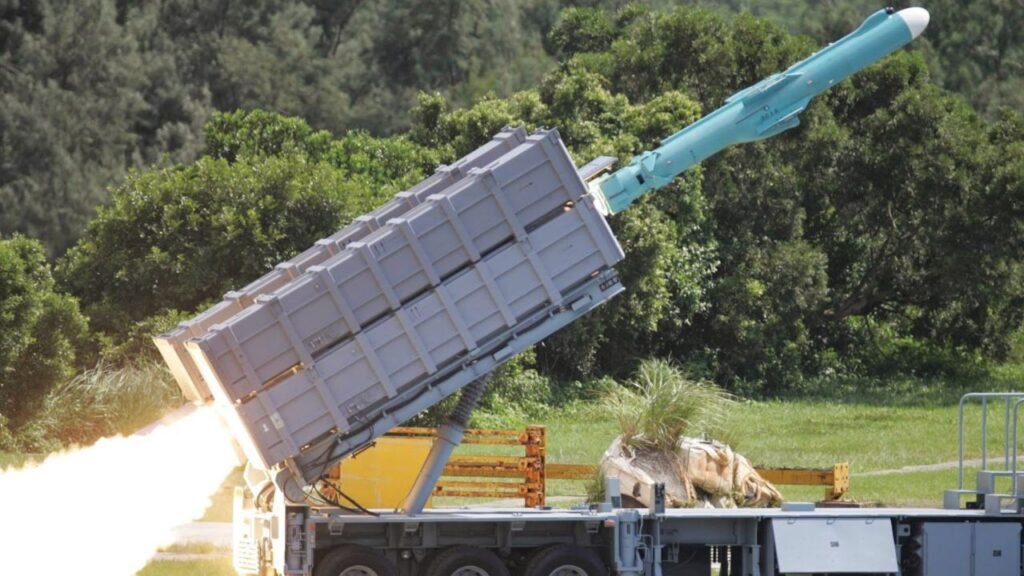In response to China’s intensified military pressure and escalating threats, Taiwan’s armed forces have announced plans to increase the number of missile drills they conduct this year. The decision was made public by Taiwanese Defence Minister Chiu Kuo-cheng, who emphasized the need to bolster training efforts in the face of the changing “enemy threat”. The move comes as China continues to assert its claim over Taiwan, despite the island’s firm objections.
Defense Minister’s Announcement
During a parliament session, Defence Minister Chiu addressed the media and explained the rationale behind the decision to increase missile drills. He acknowledged that in the past, these drills were limited to specific times of the year to minimize disruptions to aviation and daily life.
However, with the evolving security situation, Chiu stressed the importance of adapting training to respond to the enemy’s changing tactics. While he did not provide specific details on the quantity of ammunition to be used, he emphasized that the drills would comply with regulations.
Response to Increased Military Pressure
China’s increased military activities near Taiwan, including frequent incursions into its air defence identification zones, have prompted Taiwan’s decision to bolster its defence preparations. The Taiwanese government recognizes the need to counter China’s growing military presence and protect its sovereignty. By increasing the frequency of missile drills, Taiwan aims to enhance its readiness and improve its defensive capabilities.
Frequency and Timing of Missile Drills
Taiwan’s missile drills had previously been conducted at specific times of the year.
However, with the evolving security landscape, there is a need to adapt to potential threats more dynamically. By increasing the number of missile drills, Taiwan’s armed forces can enhance their preparedness and ability to counter potential attacks effectively.
China’s Claims on Taiwan
China persistently claims Taiwan as its own territory, despite Taiwan’s status as a democratically governed and independent entity. The Chinese government strongly opposes any international recognition of Taiwan’s sovereignty. This disagreement over Taiwan’s political status forms the foundation of the ongoing tensions between China and Taiwan.
Increased Military Presence and Incursions
In recent years, China has significantly intensified its military activities in the vicinity of Taiwan. Almost on a daily basis, Chinese forces have been intruding into Taiwan’s air defence identification zones, challenging Taiwan’s sovereignty and pressuring the island to accept China’s claims. These incursions serve as a show of force and a demonstration of China’s military capabilities aimed at coercing Taiwan into submission.
Impact on Taiwan and International Relations
China’s increased military presence near Taiwan has significant implications not only for the island but also for regional security and international relations. The constant pressure from China forces Taiwan to continuously assess and adapt its defense strategies. It heightens security concerns within Taiwan and necessitates a comprehensive approach to safeguarding its sovereignty.
Furthermore, this situation contributes to regional tensions, potentially affecting stability in the broader Asia-Pacific region. The international community closely monitors developments in the Taiwan Strait as they impact existing geopolitical dynamics and strategic interests.
Impact of Taiwan’s Decision
Regional Security Implications
Taiwan’s decision to increase missile drills reflects the island’s commitment to maintaining its defensive posture and regional stability. By enhancing its military capabilities, Taiwan aims to deter potential aggressors and ensure its ability to defend itself effectively. This commitment to security resonates beyond Taiwan, as it contributes to maintaining the delicate balance of power in the region. It underscores Taiwan’s determination to protect its sovereignty and preserve peace in the Taiwan Strait.
Economic and Political Ramifications
Taiwan’s decision to increase missile drills and strengthen its defense preparedness could have economic and political ramifications. Heightened tensions in the Taiwan Strait may impact trade relations and investment flows in the region. The uncertainty resulting from the Chinese threat could introduce a degree of risk for businesses and markets in Taiwan and neighboring countries. Politically, the situation could further strain cross-strait relations, potentially impacting diplomatic negotiations and obstructing efforts to reduce tensions.
Response from International Community
Given the strategic importance of the Taiwan Strait and the potential repercussions of any conflict in the region, the international community closely monitors developments between China and Taiwan. Various countries and international organizations advocate for the peaceful resolution of disputes in line with international law and the principles of freedom of navigation. While not taking a formal position on the political status of Taiwan, these stakeholders encourage dialogue and negotiations to de-escalate tensions and promote stability in the region.
China’s Defense Spending and Escalation of Tensions
Latest Defense Spending Increase
China’s decision to boost its defense spending by 7.2% this year, the same rate as last year, highlights its continued focus on military modernization and development. With defense spending exceeding the government’s economic growth forecast, China’s commitment to expanding its military capabilities remains evident. This increase in defense expenditure further compounds concerns in the region and raises questions about China’s intentions.
Aligning Military Strategy with Economic Growth
China’s defense spending raises questions about the correlation between its economic growth and military ambitions. The disparity between defense spending growth and broader economic indicators raises concerns about the prioritization of military development over other sectors. This alignment of China’s military strategy with its economic growth projection warrants a careful assessment by stakeholders in the region and beyond.
Implications for Cross-Strait Relations
China’s increased defense spending and military buildup near Taiwan have significant implications for cross-strait relations. The continued escalation of tensions raises the risk of unintended incidents and potential conflicts that could have a lasting impact on stability in the region. Balancing security concerns with diplomatic engagement is crucial for managing the complex dynamics between China and Taiwan and achieving a peaceful resolution to their differences.


